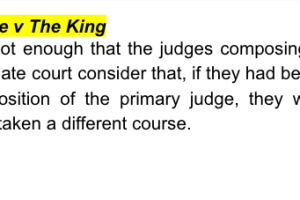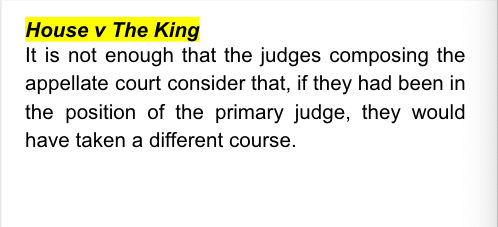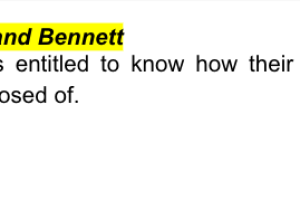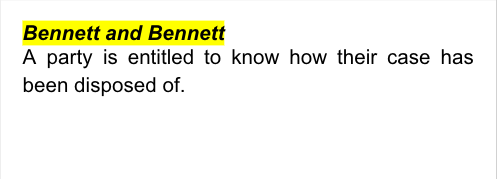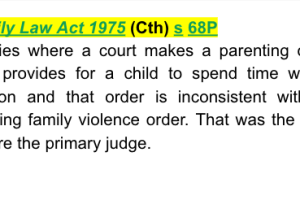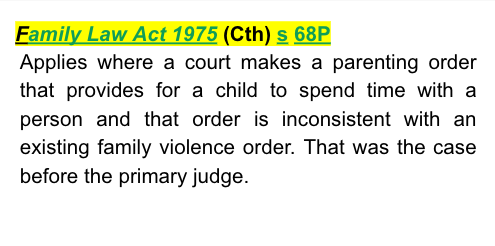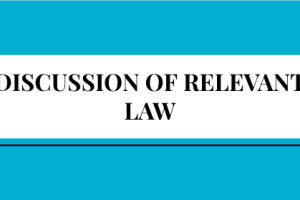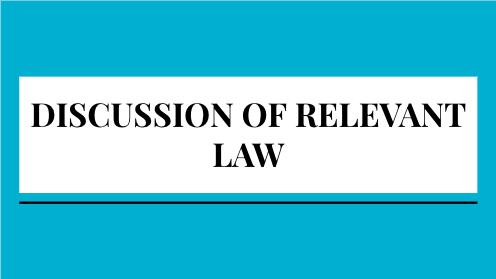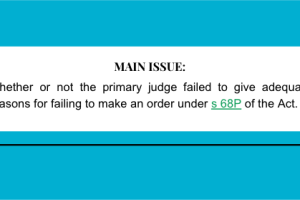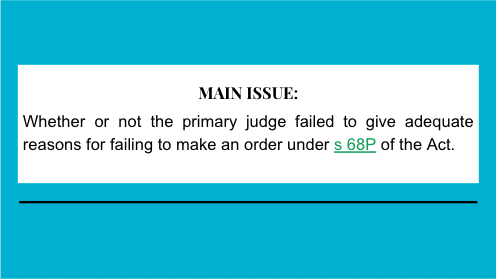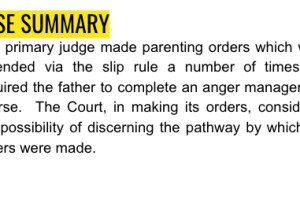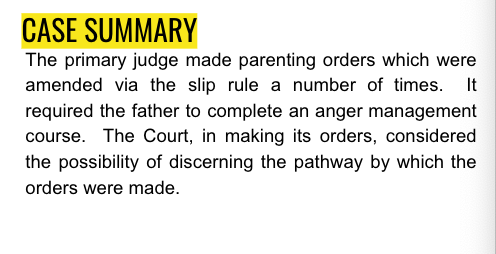- · 4752 friends
Parties Dispute Parenting Orders

Clanton & Lachman (No 2) [2022] FedCFamC1A 165 (11 October 2022)

The primary judge made parenting orders which were amended via the slip rule a number of times. It required the father to complete an anger management course. The Court, in making its orders, considered the possibility of discerning the pathway by which the orders were made.

Facts
In 2007, prior to the parties commencing cohabitation, the father stomped on the mother’s hands and fingers causing injury and bruising. In April or May 2009, the father broke a bag belonging to the mother, wrapped a t-shirt around her neck and pulled tight, restricting her from breathing consistently. It took the mother two minutes to break free from the father’s grasp. As a result of that assault, the police took the father to the psychiatric ward at Z Hospital and a Provisional Apprehended Domestic Violence Order was taken out by them for the protection of the mother. That order ended when the mother ultimately asked the police not to pursue a final Apprehended Domestic Violence Order.
On 11 May 2012, the father pushed the mother into some surround sound speakers causing her to fall. The father then took one of the children out of her bed, which required the mother to grab the child from the father. The father then left the home, but returned shortly after and smashed the maternal grandmother’s mobile phone. A Provisional Apprehended Domestic Violence Order for the protection of the mother was made by the police. On 15 May 2012, the Suburb E Local Court made a final Apprehended Domestic Violence Order for the period of one year for the protection of the mother.
The father was also placed on a good behaviour bond, which as the primary judge rightly observed, meant that the father must have been convicted of an assault. The father was required to complete a 24 week domestic violence program in Queensland. The father completed his 24 week domestic violence course in 2013, but as the primary judge found at [64], he did not learn how to regulate his conduct. On 10 August 2017, the father attended the mother’s home and demanded to see the children.
On 12 August 2017, the police issued another Provisional Apprehended Domestic Violence Order against the father for the protection of the mother, which was made final by the Suburb E Local Court on 19 December 2017 for a period of one year. On 29 November 2019, the mother and the children were at the maternal grandparent’s home in Suburb C. The father arrived and demanded that the children be given into his care. The mother locked the doors. The father then began banging on a window with a key and the mother informed him that she would call the police if he persisted, which he did.
The primary judge ordered that the children’s time with the father to be spent on the weekend of 18 and 19 June 2022, the time the children were to spend with the father was conditional upon him having done all things necessary to enrol in an anger management course through J Service.

Issue
Whether or not the primary judge failed to give adequate reasons for failing to make an order under s 68P of the Act.

Applicable law
Family Law Act 1975 (Cth) s 68P - applies where a court makes a parenting order that provides for a child to spend time with a person and that order is inconsistent with an existing family violence order. That was the case before the primary judge.



Analysis
His Honour took into account the wishes of the children to see their father, as expressed to the Family Consultant (set out at [277]–[282]). However, because of their age and because the Family Report interviews were conducted before the events of 29 November 2019, they were not given great weight as to whether the Court should follow them, but were given weight as an indication as to the nature of their relationship with the father. It is not possible to discern from his Honour’s reasons why he found it was not in the best interests of the children to have an explanation given to them as to why they would be seeing their father, when there was an Apprehended Domestic Violence Order in place for their protection.
The appellant asserts that his Honour erred because it was not possible to discern the pathway by which he reached the particular orders that he did. It cannot be discerned from the reasons how his Honour found that the F Service and subsequently the J Service anger management courses would ameliorate the otherwise unacceptable risk of harm that the father posed and how an obligation to complete the course was reconcilable with the children immediately spending unsupervised time with the father in a rapid reintroduction of the children to him.
Conclusion
The respondent’s oral application for an adjournment is refused. The appeal is allowed. Orders 2, 4, 6 and 12 made on 4 April 2022 as amended on 7 April 2022, 27 May 2022 and 3 June 2022 are set aside. The further issues as to parental responsibility and the time the children are to spend with the father, if any, are remitted to the Federal Circuit and Family Court of Australia (Division 2) for rehearing before a judge other than the primary judge.


